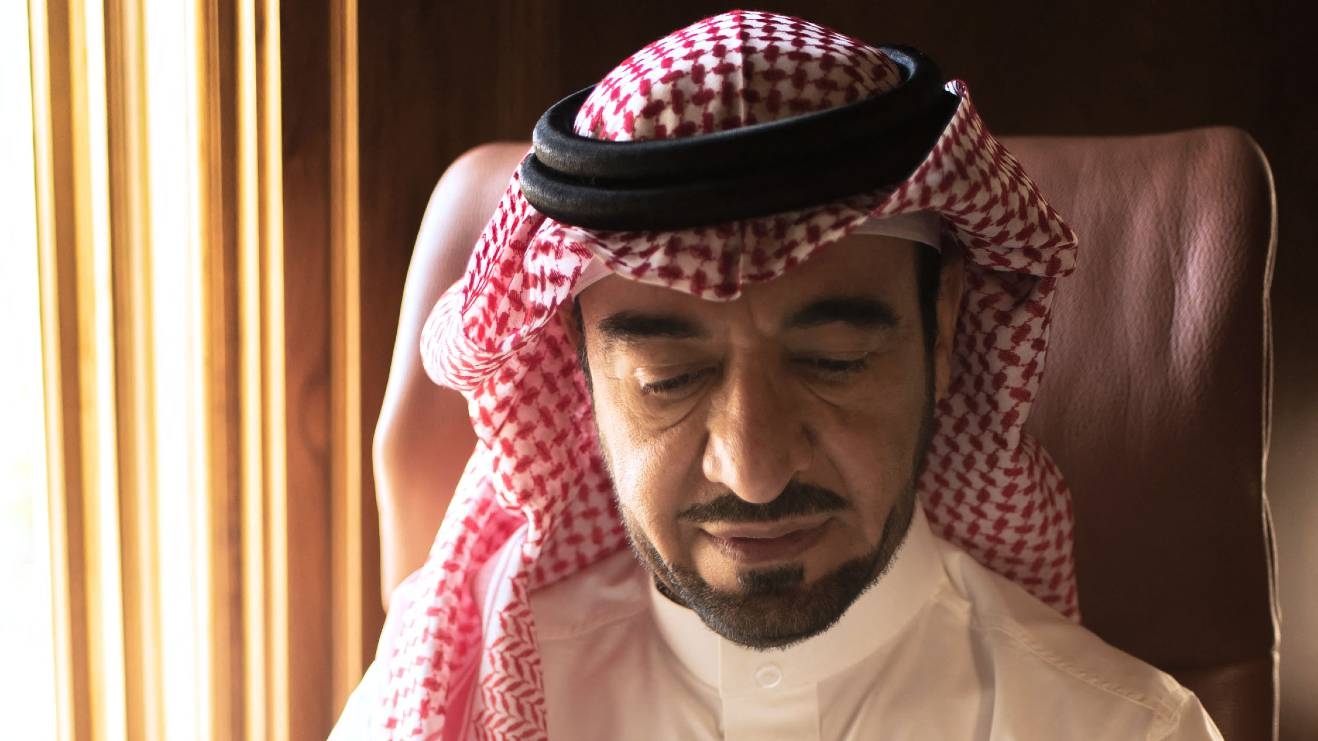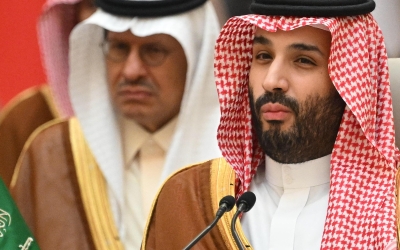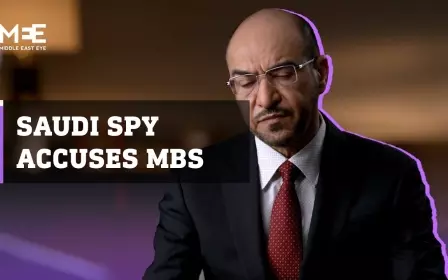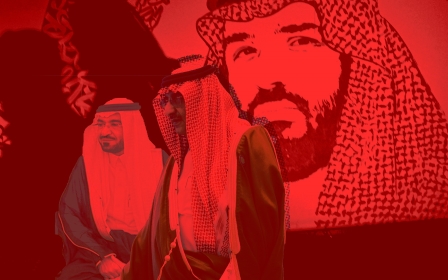Saudi Arabia: US judge throws out former spy chief’s case against crown prince

A US court has dismissed a lawsuit against Saudi Arabia's Crown Prince Mohammed bin Salman that accused him of ordering an operation to kill one of the kingdom's former top intelligence officials.
In a ruling filed on Friday, Judge Timothy Kelly said Saad al-Jabri, who served as the kingdom’s spy chief until he fled in 2017, failed to prove that Kelly's Washington court had jurisdiction in the case, which was also brought against a dozen other Saudi Arabians and MiSK, the crown prince's foundation.
'Inferring that he tried to kill Aljabri specifically to impact the US intelligence community is a bridge too far'
- Judge Timothy Kelly
Among other allegations, Jabri contended that Mohammed bin Salman sent the secretive "Tiger Squad" special unit to kill him in Canada in October 2018, the same month that the team killed Jamal Khashoggi at the Saudi consulate in Istanbul.
Jabri’s lawyers argued that, given the close ties Jabri had developed with the US intelligence community, the crown prince “purposefully targeted” the United States because his alleged attempt to kill the former spy chief was meant to disrupt US-Saudi intelligence sharing.
In a 40-page ruling, in which he described the allegations as “the stuff of a Tom Clancy novel”, Kelly does not dispute the veracity of Jabri's claims, but says Jabri and his lawyers had failed to convince him that the case should be heard in his court.
New MEE newsletter: Jerusalem Dispatch
Sign up to get the latest insights and analysis on Israel-Palestine, alongside Turkey Unpacked and other MEE newsletters
“The court could reasonably infer various motives on bin Salman’s part related to his efforts to seize and maintain power in Saudi Arabia,” Kelly wrote.
“But inferring that he tried to kill Aljabri specifically to impact the US intelligence community is a bridge too far.”
Another reason Jabri and his lawyers argued the case should be tried in the US is that the crown prince, they alleged, deployed operatives on US soil, including Saudi Arabian students on scholarship, to question his friends and family.
But Kelly also said none of the facts presented by Jabri's lawyers "would allow the court to infer that there was any relationship between bin Salman and the four 'operatives'".
Kelly also notes that Jabri's request for discovery in the case "would be far from routine" and would mean deposing Saudi government officials, including the crown prince.
"This court will not 'lightly' set two sovereign nations 'onto a collision course' especially when many of Aljabri’s jurisdictional requests 'ask for everything under the sky' and there is no particular reason to believe any of the material sought would change this court's conclusion," he ruled.
Jabri’s son and daughter, Sarah and Omar, who had been studying in the US, were arrested in Saudi Arabia in March 2020 and held incommunicado until January 2021.
A Saudi court in November 2020 sentenced Omar to nine years and Sarah to six years on charges of money laundering and attempting to escape Saudi Arabia in a trial that rights groups say was unfair and an attempt to coerce their father back to the kingdom.
In June, the UN Working Group on Arbitrary Detention (WGAD) called for the siblings to be released immediately and unconditionally.
The campaign to free Sarah and Omar said in a statement that it respectfully disagreed with the court’s decision and believes there are “strong grounds for appeal”.
“MBS’ crimes against Dr Saad and his family had - and continues to have - a strong US nexus and included activities on US soil by US-based individuals,” the statement said, using a common nickname for Mohammed bin Salman.
“And while we are disappointed that the judge incorrectly found a procedural technicality that delays our ability to litigate the merits of MBS’ ruthless persecution of our family, we remain hopeful that our pursuit of justice and accountability will bear fruit.”
Mohammed bin Salman's lawyers did not respond immediately for comment.
In a separate lawsuit filed in Massachusetts against Jabri by Saudi state-owned firm Sakab Saudi Holding, an attorney for the US Justice Department on Friday urged the appeals court to affirm the case's dismissal, citing the state secrets privilege.
Last year, the US District Court of Massachusetts ruled that the case, which accuses Jabri of embezzling state funds, could not go forward without involving information that the US government believes would compromise state secrets and security interests.
The US court also said that Sakab's case had no legal basis in federal or Massachusetts law.
Middle East Eye delivers independent and unrivalled coverage and analysis of the Middle East, North Africa and beyond. To learn more about republishing this content and the associated fees, please fill out this form. More about MEE can be found here.





